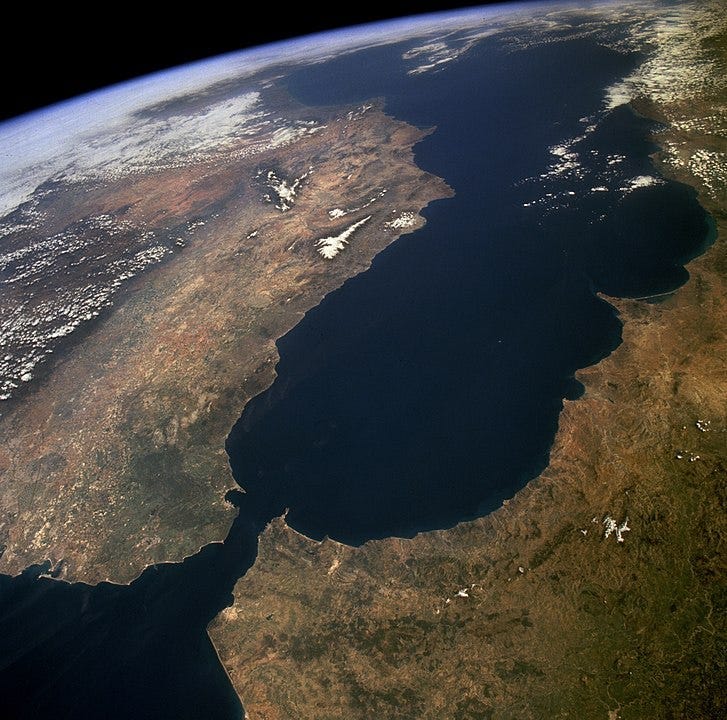Understanding the End Game of Geopolitical Influence: Competition for Political Power in Strategic Regions and Fragile States
Insights into the pursuit of geopolitical influence and its impact on strategic regions and fragile states.

Introduction:
In the complex arena of international politics, nations continuously vie for influence on the global stage. The pursuit of political power is not limited to military might or economic dominance alone. Rather, it extends to the intricate game of geopolitical influence, where states strategically navigate alliances, economic partnerships, and diplomatic maneuvers to shape the course of events in strategic regions and fragile states. In this article, we delve into the motives behind expanding a nation’s political influence, explore the interconnectedness of political events worldwide, and examine how foreign adversaries disrupt the activities of foreign influence in other nations.
Motives for Expanding Political Influence:
The drive to expand political influence stems from various motives, often intertwined with a nation’s pursuit of its own security, economic interests, and ideological objectives. Firstly, securing access to vital resources and trade routes drives nations to extend their political influence over strategic regions. Energy-rich areas, maritime chokepoints, and critical transportation hubs become focal points of competition, as control over these areas can bestow significant leverage in shaping global affairs.
Secondly, nations seek to extend their sphere of influence to protect their national security interests. Proactively establishing diplomatic, military, and intelligence networks in regions of strategic importance allows countries to project power, maintain stability, and counter potential threats. Fragile states, plagued by internal conflicts or governance challenges, become prime targets for external influence, as their vulnerabilities offer avenues for intervention and leverage.
Thirdly, ideological motivations drive nations to expand their political influence. Competing ideologies, be they democratic, autocratic, or religious in nature, often clash on the global stage. Countries seek to promote their preferred systems of governance and values, attempting to shape international norms and institutions in alignment with their ideological aspirations. Such ideological competition further intensifies the quest for geopolitical influence.
Interconnected Political Events Worldwide:
Geopolitical influence is not confined to isolated incidents but operates within a broader tapestry of interconnected political events. A significant development in one region can trigger a cascade of consequences in seemingly unrelated parts of the world. The rise of populism in Europe, for instance, can be influenced by political shifts in other regions, reflecting the diffusion of ideas, narratives, and tactics employed by influential actors. Similarly, economic crises or conflicts in one part of the globe can have far-reaching implications on global trade, migration patterns, and political alignments.
Moreover, technological advancements and the digital age have amplified the interconnectedness of political events. Information dissemination, social media, and cyber tools allow ideas and narratives to transcend borders rapidly. This interconnectedness creates opportunities for both positive engagement and interference by foreign adversaries seeking to manipulate narratives, sow discord, and disrupt the political processes of other nations.
Foreign Adversaries and Disruption of Foreign Influence:
In the pursuit of geopolitical influence, foreign adversaries employ a range of tactics to undermine and disrupt the activities of other nations in fragile states or strategic regions. These tactics include covert operations, cyber espionage, propaganda campaigns, and support for local actors aligned with their interests. By exploiting existing divisions, fostering political polarization, or fueling conflicts, foreign adversaries aim to destabilize governments, weaken alliances, and subvert the influence of their rivals.
Economic leverage and debt diplomacy are increasingly utilized to assert influence over fragile states. By extending loans, investment packages, or infrastructure projects, foreign adversaries can gain strategic footholds, extract concessions, and exert significant sway over the political decision-making of the recipient nation. This form of influence becomes particularly potent when targeted at states grappling with economic challenges or seeking development assistance.
Conclusion:
To truly grasp the end goal of geopolitical influence, one must have a deep understanding of the various motives that drive nations to expand their political power, the interconnectedness of political events on a global scale, and the tactics employed by foreign adversaries to disrupt foreign influence in other nations. As the global order continues to evolve, competition for political influence in strategic regions and fragile states remains vital to international relations. By comprehending these dynamics, interested individuals can gain valuable insights into the intricate web of world events and appreciate the multifaceted nature of global politics.
M. Nuri Shakoor, Global Security Analyst
ARAC International Inc
Independent non-profit research foundation
Registered with the U.S. Agency for International Development


